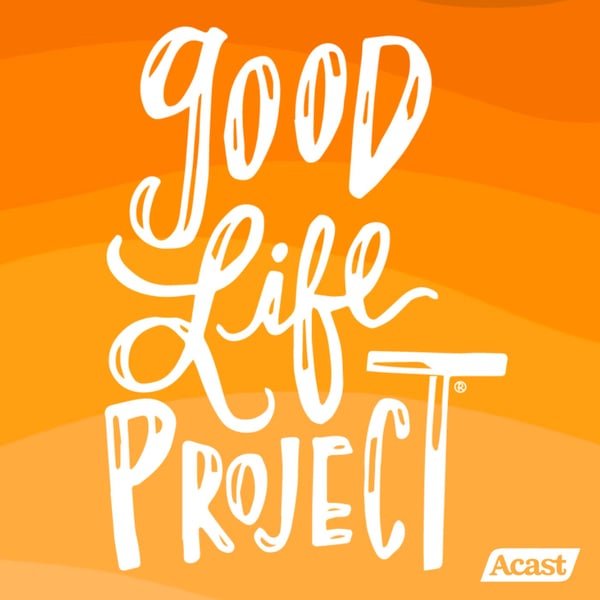The Cutting-edge Science of Self-control (and What to Do About It) | Michael Inzlicht, PhD
Good Life Project
Jonathan Fields / Acast
4.6 • 3.2K Ratings
🗓️ 9 December 2024
⏱️ 66 minutes
🧾️ Download transcript
Summary
What if everything you thought you knew about willpower and self-control was wrong? In this groundbreaking conversation, psychologist Michael Inzlicht challenges the famous "ego depletion" theory and reveals surprising new research on the true nature of self-regulation.
Discover why conscientious people may be wired differently, how to leverage motivation for lasting change, and science-backed strategies to amplify your ability to stick to goals - without burning out your willpower. If you want to master self-discipline in a sustainable way, don't miss these fresh insights.
You can find Michael at: Website | Speak Now Regret Later Substack | Episode Transcript
If you LOVED this episode you’ll also love the conversations we had with James Clear about atomic habits.
Check out our offerings & partners:
- Join My New Writing Project: Awake at the Wheel
- Visit Our Sponsor Page For Great Resources & Discount Codes
Hosted on Acast. See acast.com/privacy for more information.
Transcript
Click on a timestamp to play from that location
| 0:00.0 | So my mission is to look at the people who got high self-control, the high trait self-control, |
| 0:06.4 | and try to understand what are they doing? What actions are they engaging in to bring about the good |
| 0:12.5 | outcome? Because I don't think it's magic. I don't think it's just like they're born with high |
| 0:15.6 | self-control and therefore they don't do anything and all of a sudden they get all the good stuff |
| 0:19.0 | later in life like longevity, health, etc. They see the world differently and they engage in actions in accordance |
| 0:24.4 | with how they view the world. You can start reflecting on your goals and start asking yourself, |
| 0:30.4 | how do these goals align with my personal values to get an autonomy? How does it connect with other |
| 0:35.5 | people for relatedness? And how do I feel a sense of |
| 0:39.1 | like competence and mastery and self-efficacy from me? So kind of rethink it. So if you ever |
| 0:47.4 | found yourself staring down a piece of chocolate cake or a cookie or some yummy treat knowing |
| 0:51.8 | you kind of really shouldn't indulge, but feeling almost |
| 0:54.5 | powerless to resist its siren call. Or how about hitting the snooze button one too many times? |
| 1:01.1 | Instead of dragging yourself out of bed for that planned early morning workout, I know I have been |
| 1:06.5 | there more times than I can count. We set these ambitious goals for ourselves, but then our willpower |
| 1:12.0 | or self-control seems to crumble in that moment of truth. Why is summoning up self-control so |
| 1:19.8 | fiendishly difficult sometimes? What if I told you that much of what we think about willpower and |
| 1:26.3 | self-discipline and self-control, is turned on |
| 1:29.3 | its head by cutting-edge research. My guest today has been at the forefront of upending our |
| 1:34.9 | assumptions about self-control through groundbreaking studies, and his surprising findings reveal that |
| 1:40.5 | maybe, just maybe, we've been thinking about this whole willpower thing all wrong. |
| 1:47.9 | So my guess is Michael Inslet, a professor at the University of Toronto who has been upending our |
| 1:54.2 | assumptions about willpower and self-control through his research in his work and play lab. |
... |
Please login to see the full transcript.
Disclaimer: The podcast and artwork embedded on this page are from Jonathan Fields / Acast, and are the property of its owner and not affiliated with or endorsed by Tapesearch.
Generated transcripts are the property of Jonathan Fields / Acast and are distributed freely under the Fair Use doctrine. Transcripts generated by Tapesearch are not guaranteed to be accurate.
Copyright © Tapesearch 2025.

